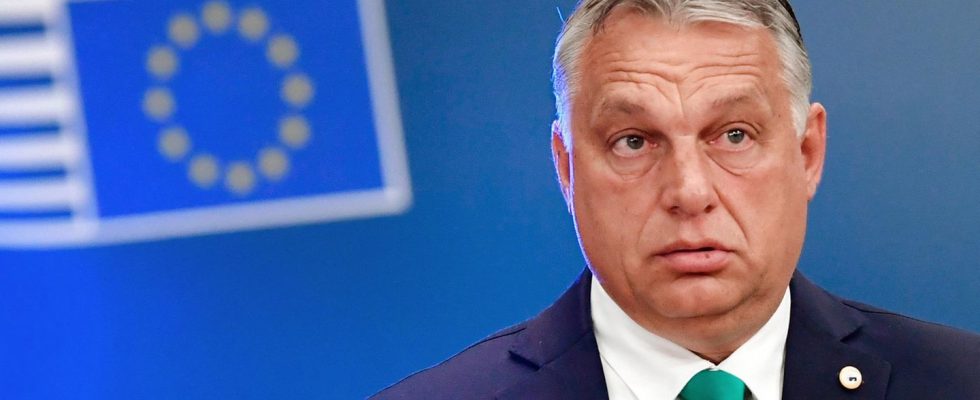Migration policy in Brussels
The EU countries meet for the summit. Controversy is programmed on one topic
Hungary’s Prime Minister Viktor Orban made his position on migration policy clear ahead of the EU summit
© John Thys/AFP Pool/AP/DPA
The EU summit in Brussels will deal with the mercenary uprising of the Wagner group and further aid for Ukraine. But not only. Zoff is programmed – when the heads of state turn to migration.
Both countries are opposed to the plans for a far-reaching reform of the European asylum system, which was launched almost three weeks ago by majority decision at a meeting of EU interior ministers. In addition to an obligation to show solidarity in emergency situations, they envisage numerous additions and tightening of the current rules in order to limit illegal migration.
In particular, a much tougher treatment of people from countries that are considered relatively safe is planned. In the future, after crossing the border, they will be taken to strictly controlled reception facilities under conditions similar to detention. There, it would normally be checked within twelve weeks whether the applicant has a chance of asylum. If not, it should be sent back immediately.
Negotiations with the European Parliament about the plans are to begin shortly. However, there is now a risk that Hungary and Poland, in protest against the majority decision of the interior ministers, will block other decisions or declarations that require unanimous decisions. At EU summits, for example, unanimity is always required.
Tension in talks with Tunisia
Orban recently campaigned in an interview with “Bild”, “Welt” and “Politico” for refugees outside the EU area to wait for their asylum procedures to be completed. “Unfortunately, we Europeans are not able to regulate that,” said the conservative politician.
Difficult talks are also expected on the planned stronger cooperation with Tunisia on migration policy. According to diplomats, there is dissatisfaction, especially in Italy, that countries like Germany want to attach strict conditions to planned financial aid for the state in North Africa. Rome fears that the government in Tunis might not be willing to provide more help in the fight against illegal migration if the conditions are too strict. President Kais Saied, who has been pursuing an increasingly autocratic course for more than a year, recently rejected the reforms demanded by the International Monetary Fund (IMF).
Cooperation with Tunisia is relevant because the state is currently both an important country of origin and an important transit country for undesired migration across the Mediterranean to the EU. According to figures from the United Nations, more than 30,000 people arrived in Italy via Tunisia this year alone.
Zelenskyj expected by video at EU summit
According to the official agenda, the central topic at the summit will be consultations on further support for Ukraine. An exchange about the uprising of mercenary group chief Yevgeny Prigozhin and his Wagner troupe in Russia is also expected. To this day it is unclear what impact the weekend’s events will have on Russia’s war of aggression against Ukraine and why Prigozhin ultimately decided to call off the uprising.
At least marginally, Hungary’s ongoing blockade of EU funds for the delivery of weapons and equipment to the Ukrainian armed forces should also be discussed. According to diplomats, the government in Budapest is protesting that Ukraine has put the Hungarian OTP Bank on a list of supporters of the Russian war of aggression.
Ukrainian President Volodymyr Zelenskyy is said to be temporarily connected to the meeting via video on Thursday afternoon. A working lunch on European and global security issues is also planned with NATO Secretary General Jens Stoltenberg before the official start of the summit. For Germany, Chancellor Olaf Scholz (SPD) is expected in Brussels.
On the second day of the summit, topics will include the EU’s China policy and economic issues. In view of the dependence on the second largest economy in the world, risks in China business and in the supply chains should be reduced.

